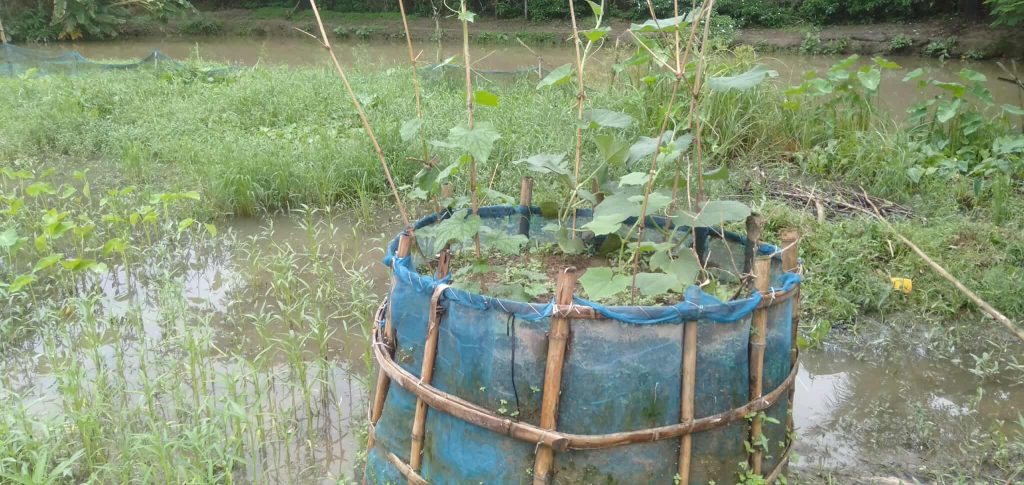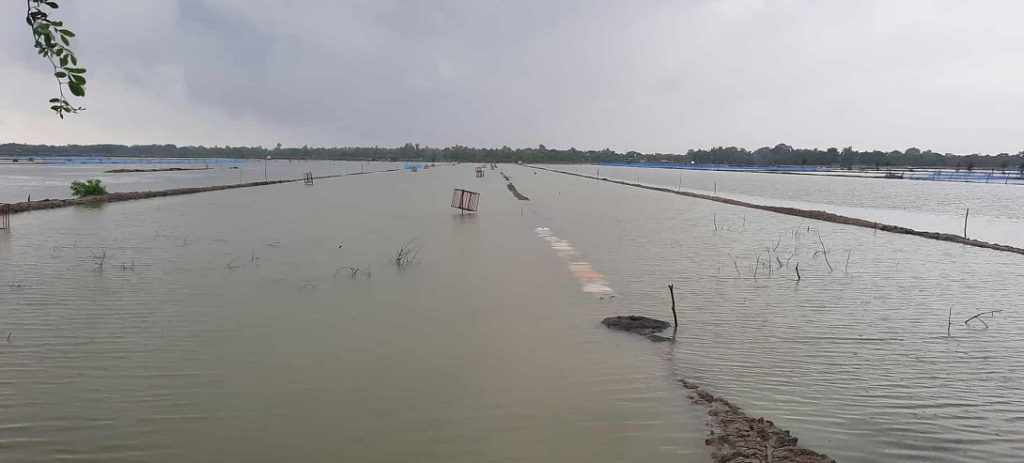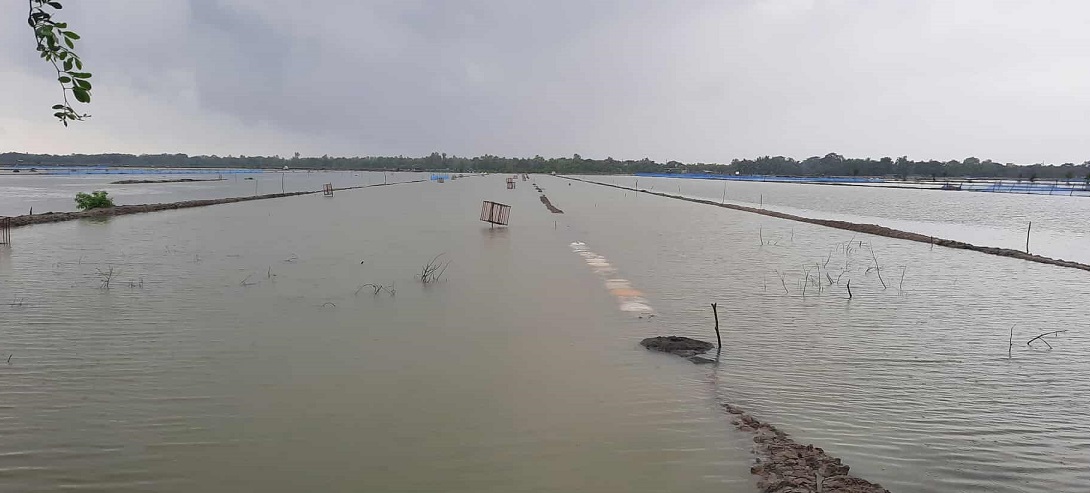By Maruf Hossain and Biswajit Mondal from Shymnagar, Satlhira
The coastal region of Bangladesh is disaster-prone. It faces regular salinity, drought, excessive rain, and waterlogging. Since mid-June, continuous rains have flooded villages in all 12 unions of Satkhira’s Shyamnagar upazila. Homesteads, ponds, vegetable plots, canals, shrimp farms, and Aman rice seedbeds are inundated. Farmers are now worried about both the main-season Aman rice cultivation and their homestead vegetable production.

Aman is the primary rice season here, with seedbeds prepared in June–July. The heavy rain has damaged many seedbeds, creating fears of seed crisis. At the same time, homestead vegetable fields are waterlogged, killing plants and increasing vegetable prices.
When explaining the problem Prashanta Sardar of Kultali village said: “Every year there is a disaster in Aman season. This time seedbeds are ruined, plantation will be delayed, and we will have to buy new seeds at high prices.” On the other hand, Budhar Chandra Mondal of Jelekhali said: “We soaked seeds and they sprouted, but the seedbeds are under water. We are forced to sow in knee-deep water! If the situation does not develop, everything will be lost.”
The same problem stated by Rafiqul Islam of Ramjannagar saying, “My seedbeds, pond, and vegetable plots are all flooded. Fish have escaped, vegetable plants are dying. We usually earn well selling vegetables in the rainy season, but not this year.”
While mentioning about their initiative to solve the problem farmers Gangaram and Lutfur Rahman of Dhumghat said, “We are not sitting idle. We are draining water and trying to save seedbeds. Some plan to move seedbeds to higher ground. But no one knows how it will end.”

Members of the Agroecology Learning Center said, “In order to survive from these disasters, we are growing vegetables in towers, sacks, crates, bottles, and buckets and those are fine, but soil-grown crops are badly affected. The heavy rain is also causing fodder shortages for livestock and increases poultry diseases.”
Therefore, effective planning is urgently needed to resolve the waterlogging. Although the local administration has taken steps, the rain is disrupting everything. Alongside government efforts, active local participation is essential to reduce losses.

